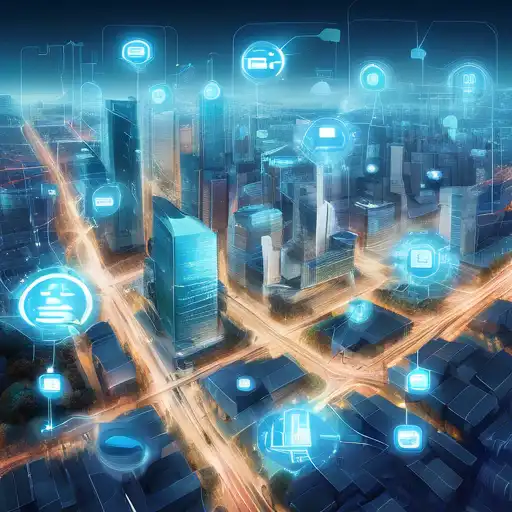Introduction to IoT in Smart Cities
The Internet of Things (IoT) is revolutionizing the way cities operate, making them smarter, more efficient, and more sustainable. By connecting devices and systems across urban environments, IoT enables real-time data collection and analysis, leading to improved decision-making and enhanced quality of life for residents.
Key Benefits of IoT in Smart Cities
IoT technology offers numerous advantages for smart cities, including:
- Enhanced Public Safety: IoT devices like smart cameras and sensors can monitor public spaces, reducing crime and improving emergency response times.
- Efficient Traffic Management: Smart traffic lights and sensors can analyze traffic flow, reducing congestion and pollution.
- Sustainable Energy Use: IoT enables smart grids and meters, optimizing energy consumption and promoting renewable energy sources.
- Improved Waste Management: Smart bins and waste collection systems can optimize routes and schedules, reducing costs and environmental impact.
Challenges and Solutions
Despite its benefits, implementing IoT in smart cities comes with challenges such as data privacy concerns and high infrastructure costs. However, solutions like robust cybersecurity measures and public-private partnerships can help overcome these obstacles.
Future Prospects
The future of IoT in smart cities is bright, with advancements in AI and 5G technology expected to further enhance connectivity and efficiency. As cities continue to grow, IoT will play a pivotal role in shaping sustainable and livable urban environments.
Conclusion
IoT is at the heart of the smart city revolution, offering innovative solutions to urban challenges. By embracing IoT, cities can improve services, reduce environmental impact, and enhance the quality of life for their citizens. The journey towards fully integrated smart cities is complex, but the potential benefits make it a worthwhile endeavor.
